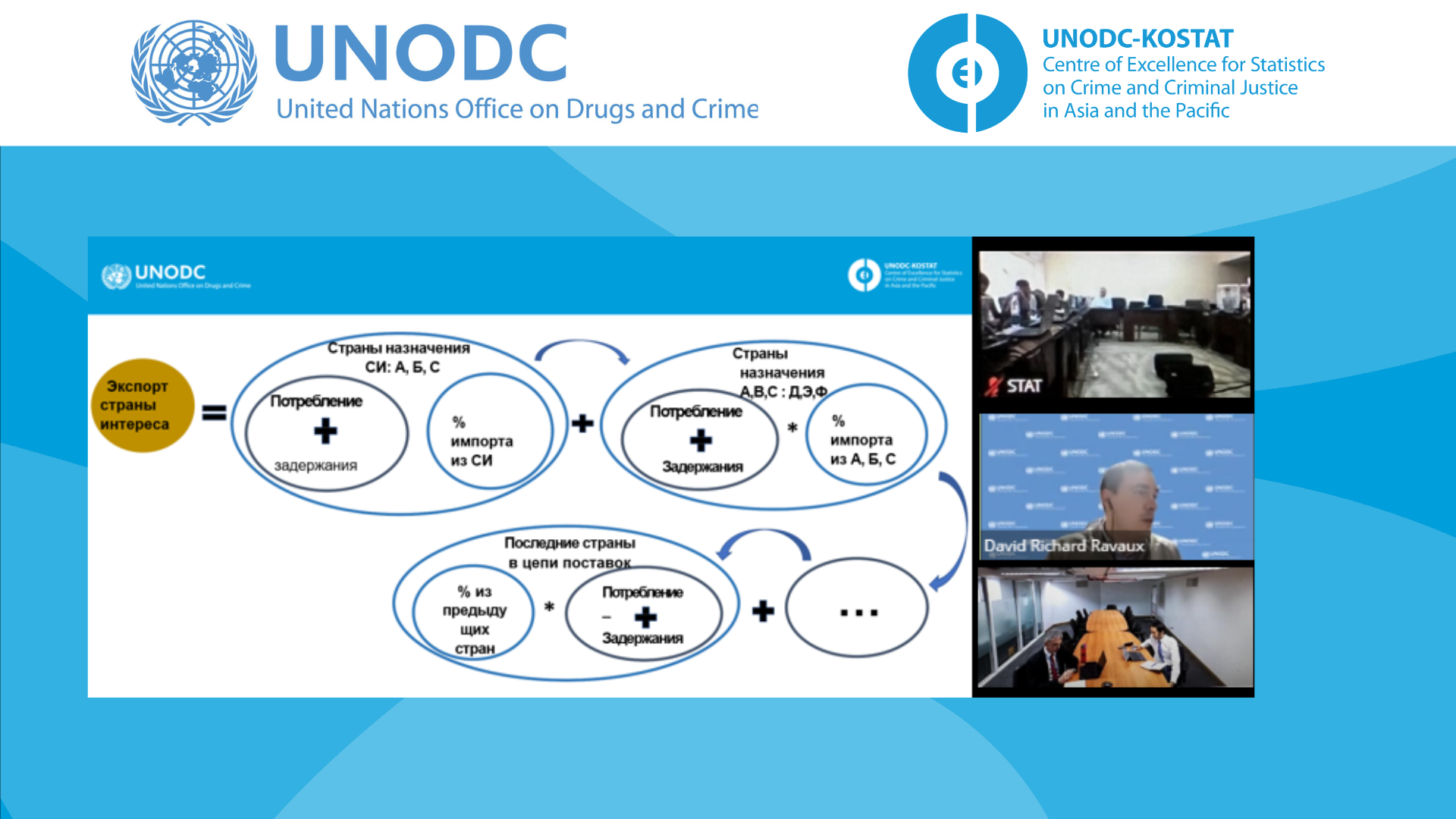
Tashkent(Uzbekistan), Virtual, 14 Nov & Bishkek (Kyrgyzstan), Virtual, 21 Nov 2023
The CoE remotely participated in the workshop “Measuring Illicit Financial Flows” which took place in Tashkent, Kyrgyzstan on 14 November and in Bishkek, Uzbekistan on 21 November, to deliver a presentation on measuring illicit financial flows (IFFs) related to drug trafficking, with key methodologies tailored-made for these two countries.
The workshop was organized by the United Nations Economic and Social Commission for Asia and the Pacific (ESCAP), with the aim of strengthening the statistical capacities of both countries to measure the indicator 16.4.1 ‘Total value of inward and outward Illicit financial flows’ under the Project ‘Measuring and Curbing Illicit financial flows’.
Representatives from law enforcement agencies, Financial Intelligence Units, Customs and Tax Agencies, Central Banks, as well as National Statistical Offices participated in the workshops with 12 representatives from Kyrgyzstan and 16 from Uzbekistan respectively. The participants actively contributed to the discussions to adapt the strategies and methods to measure and reduce IFFs in their countries.
The workshops commenced with an opening meeting with representatives of law enforcement agencies and responsible institutions on measuring IFFs and with an overview of the methodology and policy implications related to trade and taxation-related IFFs. Topics of discussion included IFF-related risks and a policy formulation on measuring and curbing tax and commercial IFFs.
The CoE presented a comprehensive overview of the methodological framework to measure IFFs related to drug trafficking, with a focus on the main aggregates to take into account, i.e., exports, imports, illicit gross income, illicit intermediate expenditure and illicit net income. The pilot process to implement the framework was detailed, considering key steps, such as the data availability assessment, data collection and estimates feasibility assessment.
The presentation also demonstrated three case studies broken down into production, transit-destination, and destination countries, based on the UNODC experience in two capacity-building projects led both in Latin America (2019-2020) and in Asia (2021-2022).
The countries’ representatives discussed the challenges of measuring the consumption of drugs and carrying out a data availability assessment among the relevant data holders. The important tools identified for conducting the measurement are the Individual Drug Seizure database, a UNODC database on singular apprehensions of drugs by each Member State, as well as the UNODC research on illicit financial flows from the trafficking of opiates along the northern route.
The meeting successfully achieved its objectives by providing the key methodological framework for measuring IFFs from drug trafficking and fostering a dialogue among the relevant national institutions of Uzbekistan and Kyrgyzstan. The CoE will continue providing support on SDG indicators in the crime and criminal justice realm, such as SDG indicator 16.4.1, to Member States in Asia and the Pacific together with other UN agencies.
Further information on the CoE can be found here, Twitter @CoE_UNODC and Facebook @UNODC.KOSTAT.CoE.